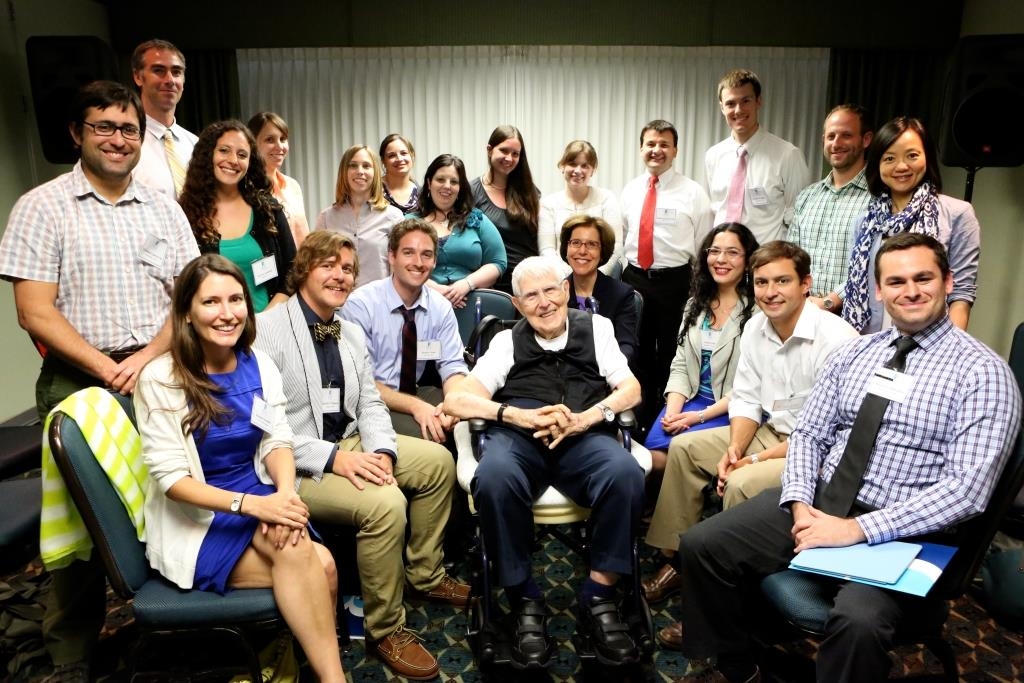One of the most rewarding parts of the Graduate Student and Early Career Professional Workshop is learning about the participants’ work and the goals they hope to achieve. We enjoy hearing about what past trainees ultimately go on to do years after their experience. This workshop attracts students and early career professionals from around the world who work with populations with diverse needs, presenting problems, and experiences. Our trainees use the models and ideas they learned from the workshop upon their return to work, and we’re always thrilled to hear about how their training experience helped facilitate the application of CBT principles in a variety of settings. The following account comes from Özlem Eylem-van Bergeijk, PhD, a scholarship winner from our 2013 workshop.

Being one of the winners of the Graduate Student and Early Career Professional Workshop Scholarship had an impact on my research interests. For instance, as part of my PhD research, I tailored an online, CBT-based intervention to the Turkish migrant populations in the Netherlands and in the UK. Participating in the workshop helped me especially when I was making the key decisions about which core elements of CBT should be maintained and which elements can be adapted culturally. Since then, I have developed an interest in the mechanisms of CBT and how much they can be adapted culturally whilst maintaining fidelity to the model.
In terms of the implications of the workshop in my practice, I used CBT techniques whilst formulating my crisis management plan in my PhD research. Specifically, asking whether participants felt happy or sad about their last suicide attempt helped me to build rapport and this had an impact on their motivation to seek further help.
Overall, my participation in the workshop not only contributed to my knowledge base in CBT, but also contributed to my confidence in utilizing CBT techniques in my work. For instance, upon completion of my PhD research, I worked on a project concerning a partnership between the National Health Services and third sector organizations in London in the UK. The project was on developing a brief psycho-educational suicide awareness workshop and implementing it among Turkish and Kurdish migrant communities in London. My knowledge of CBT provided a framework whilst developing the content of this workshop. Additionally, my experience contributed to the capacity building of the front-line workers who were involved in the project.
I am currently working with a mental health company, Cerina, as a research lead. The company is developing CBT-based mobile applications for anxiety disorders and my main responsibility is to design and manage research studies investigating the feasibility and likely effects of the applications. It is very exciting to study whether personalizing the content and user interface of mobile applications through machine learning can achieve the promised impact of CBT in treating anxiety disorders.
Lastly, one of my highlights from the workshop is about the moment I had when our group picture with the rest of the scholarship winners was taken. First, Dr. Aaron Beck and Dr Judith Beck had a meeting with all the winners to discuss their work further. At the end of the meeting, we took our positions for the group picture. Dr. Judith Beck tickled Dr. Aaron Beck to make him smile and obviously, this made all of us smile. I think there is a tendency to separate authenticity from a professional image. Having this moment, I do believe that they go together beautifully!
Thank you, Dr. Eylem-van Bergeijk, for sharing your experience. We wish you continued success in your important work. For more information about our Graduate Student and Early Career Professional Workshop, please see our training catalog.